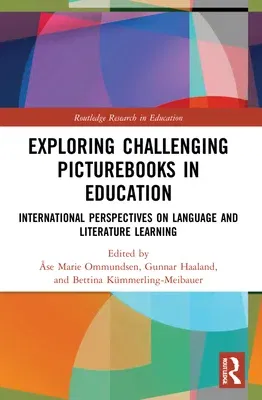What should children and students read? This volume explores challenging
picturebooks as learning materials in early childhood education, primary
and secondary school, and even universities. It addresses a wide range
of thematic, cognitive, and aesthetic challenges and educational
affordances of picturebooks in various languages and from different
countries.
Written by leading and emerging scholars in the field of picturebook
studies and literacy research, the book discusses the impact of
challenging picturebooks in a comprehensive manner and combines
theoretical considerations, picturebook analyses, and empirical studies
with children and students. It introduces stimulating picturebooks from
all continents and how they are used or may be used in educational
settings and contexts. The chapters touch on subjects like reading
promotion, second-language acquisition, art education, interdisciplinary
learning, empathy development, minority issues, and intercultural
competence. Moreover, they consider relevant aspects of the educational
environments, such as the inclusion of picturebooks in the curriculum,
the significance of school libraries, and the impact of publishers.
Exploring Challenging Picturebooks in Education sheds new light on the
multiple dimensions relevant to investigating the impact of picturebooks
on learning processes and the development of multimodal literacy
competencies. It thus makes a significant contribution to the growing
area of picturebook research and will be key reading for educators,
researchers, and post-graduate students in the field of literacy
studies, children's literature, and education research.

